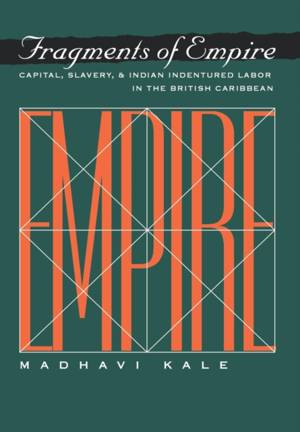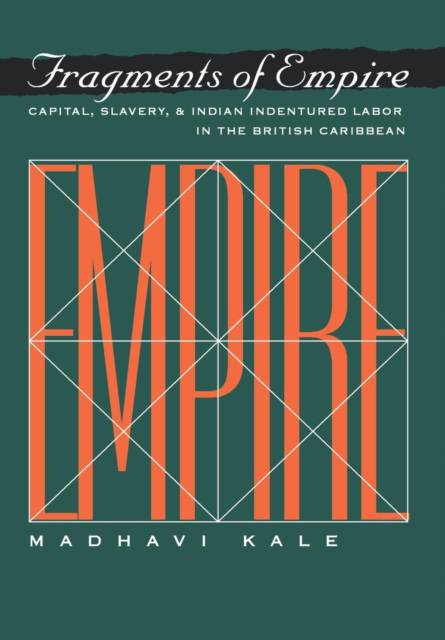
- Retrait gratuit dans votre magasin Club
- 7.000.000 titres dans notre catalogue
- Payer en toute sécurité
- Toujours un magasin près de chez vous
- Retrait gratuit dans votre magasin Club
- 7.000.000 titres dans notre catalogue
- Payer en toute sécurité
- Toujours un magasin près de chez vous
Fragments of Empire
Capital, Slavery, and Indian Indentured Labor in the British Caribbean
Madhavi Kale
69,95 €
+ 139 points
Description
When Great Britain abolished slavery in 1833, sugar planters in the Caribbean found themselves facing the prospect of paying working wages to their former slaves. Cheaper labor existed elsewhere in the empire, however, and plantation owners, along with the home and colonial governments, quickly began importing the first of what would eventually be hundreds of thousands of indentured laborers from India.
Madhavi Kale draws extensively on the archival materials from the period and argues that imperial administrators sanctioned and authorized distinctly biased accounts of postemancipation labor conditions and participated in devaluing and excluding alternative accounts of slavery. As she does this she highlights the ways in which historians, by relying on these biased sources, have perpetuated the acceptance of a privileged perspective on imperial British history.Spécifications
Parties prenantes
- Auteur(s) :
- Editeur:
Contenu
- Nombre de pages :
- 240
- Langue:
- Anglais
- Collection :
Caractéristiques
- EAN:
- 9780812234671
- Date de parution :
- 29-01-98
- Format:
- Livre relié
- Format numérique:
- Genaaid
- Dimensions :
- 157 mm x 234 mm
- Poids :
- 566 g







